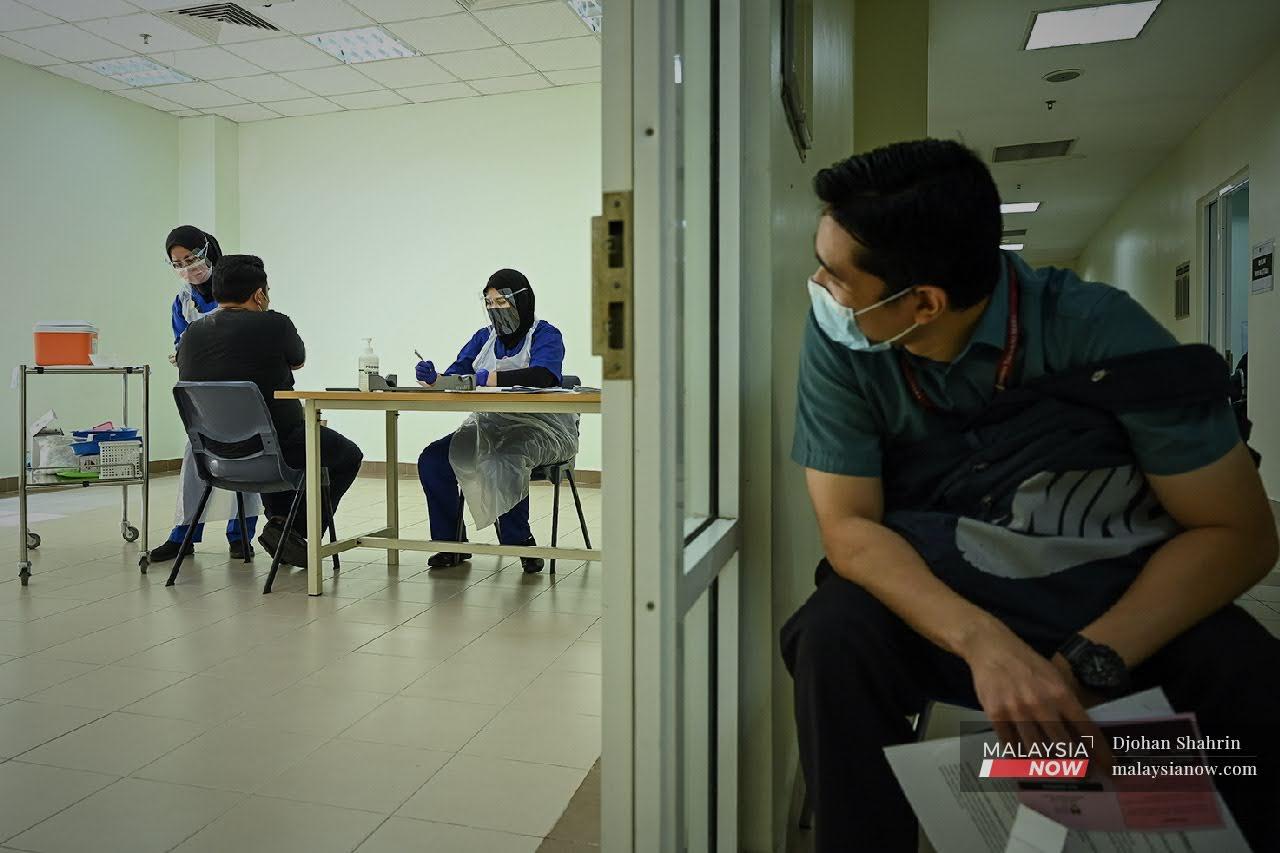Beef up communication, experts say on no-shows for vaccine appointments
This will help resolve many of the issues cited by those who skip their dates at the vaccination centre, they say.
Just In
Experts have called for clearer communication by the authorities on the facts and benefits of vaccination against Covid-19 in order to counter the wide range of reasons cited for no-shows numbering in the tens of thousands throughout the country.
Carmelo Ferlito, a senior fellow at think tank Institute for Democracy and Economic Affairs, suggested an information campaign with clear explanations of the trade-offs, the categories at risk and the facts surrounding vaccination.
“In this sense, the communication strategy has been quite poor,” he told MalaysiaNow.
“We often hear that vaccination will not be enough for us to get back our lives. People then wonder: why should I get vaccinated and be injected with something that I am not sure about if this is not driving me towards a normal life?
“These are the questions the government should address.”
The National Covid-19 Immunisation Programme or PICK is currently in its second phase involving senior citizens and those in high-risk groups.
“People wonder: why should I get vaccinated and be injected with something that I am not sure about if this is not driving me towards a normal life?”
While global data shows that Malaysia’s vaccination rate has been on the rise with nearly 6% of the population having received at least a first jab as of the end of last month according to Our World In Data, recent reports also reveal that tens of thousands have been skipping their appointments.
In Pahang alone, 10,000 were said to be no-shows while in Johor the number was even higher at over 14,000.
In Negeri Sembilan, some 6,200 people failed to turn up for their appointments while no-shows in Kedah and Perak topped 10,000 and 9,000 respectively.
Reasons given included failing to check the MySejahtera app and being influenced by fake new concerning vaccines.
Others said they were unwell or had no transport to the vaccination centre, while yet more were registered by their children but refused to be jabbed.
Khairy Jamaluddin, the minister in charge of PICK, said on Monday that an average of 80% of those with appointments show up for their vaccination.
He said authorities would continue with the approach of contacting individuals and encouraging them to receive the Covid-19 vaccine, adding that imposing compounds would be a last resort.
“The point should not be reward but information.”
On the other end of the spectrum have been calls for incentives in order to boost vaccination rates, similar to the initiatives being carried out in other countries including the US where rewards ranging from free doughnuts to lottery prizes are being offered to those who get jabbed.
But Carmelo said authorities should not resort to monetary rewards in order to encourage the public to turn up for their appointments.
“To offer money for vaccination is not a market approach,” he said. “In fact, market processes are based on the exchange of information, and here information is lacking.
“The point should not be reward but information. We need to help people make informed decisions and to think about what’s next.”
Sazaly Abu Bakar from Universiti Malaya’s Tropical Infectious Diseases Research and Education Centre agreed that clear information is needed ahead of time for those with vaccination appointments.
However he questioned the extent to which vaccine hesitancy could be blamed for no-shows, citing the enthusiastic response to the AstraZeneca shot which was rolled out under a separate opt-in programme.
“The problem is ineffective delivery and the inadequate supply of vaccines,” he said, echoing a frequent criticism of the vaccine rollout in the country.
Khairy had said the vaccination rate would pick up from June onwards once the supply of vaccines stabilises.
Malaysian Medical Association president Dr M Subramaniam meanwhile spoke of a “system failure”, pointing to what he said were inefficiencies in the MySejahtera app as well as the recent U-turn on plans to allow people to choose their vaccines.
“This could lower people’s confidence in the vaccination effort,” he said.
“The government needs to have a people-friendly approach that assists the public instead of making it hard for them.”
Still, Carmelo believes that access to information is paramount.
With the right information, he said, people would be able to exercise freedom of choice on whether or not to get vaccinated.
He said he was in favour of imposing fines on those who register but fail to turn up for their appointments, adding however that the punishment should be proportionate to the offence.
“They ‘stole’ the slot from someone who wanted to get vaccinated. But we are not talking about raping or robbing a bank,” he said.
Subscribe to our newsletter
To be updated with all the latest news and analyses daily.
